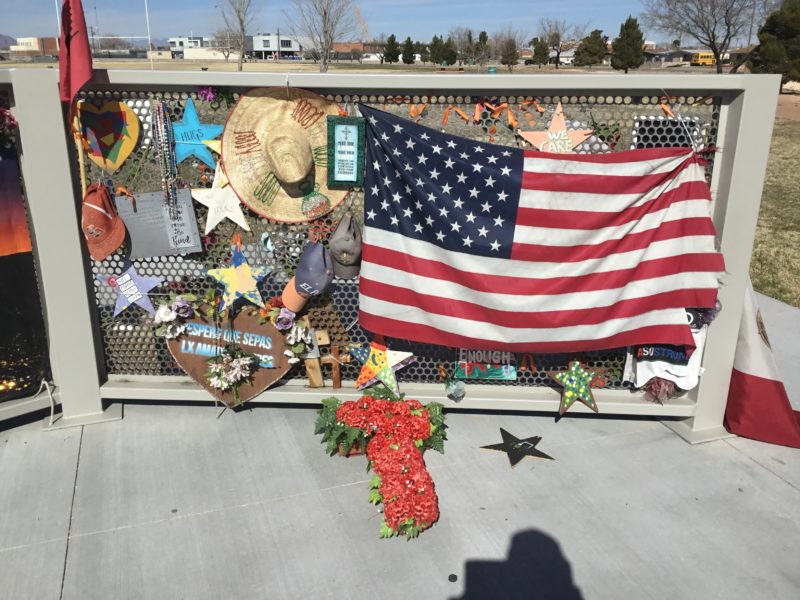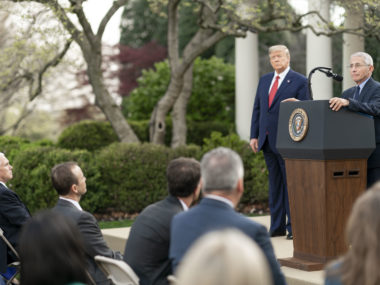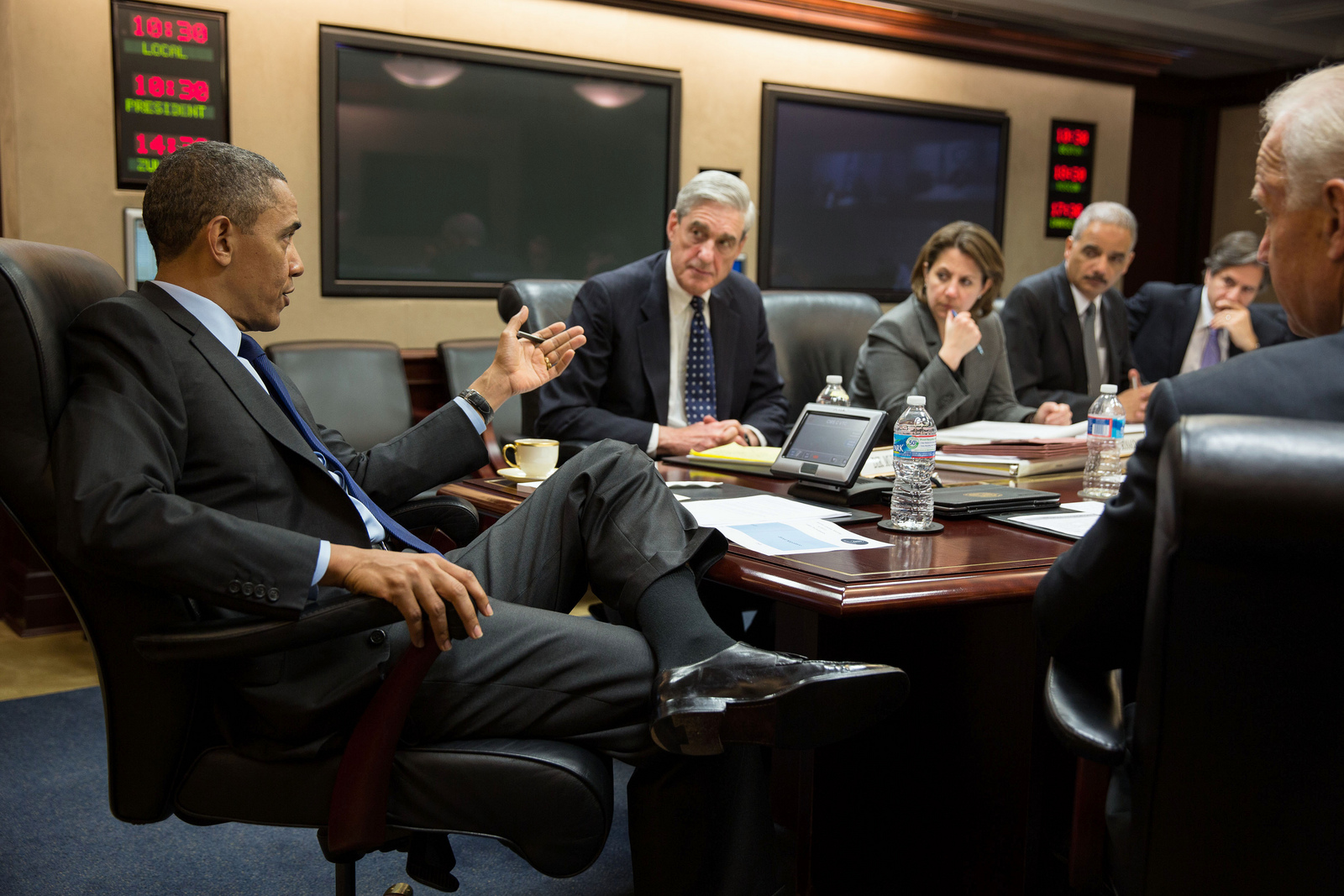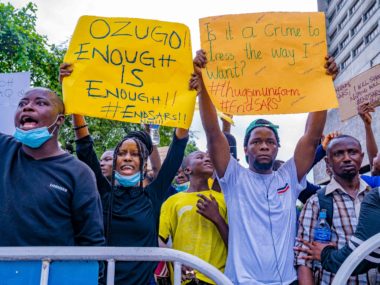By Rebecca Best
The US State Department appears on the verge of removing five organizations from its list of Foreign Terrorist Organizations (FTO). None of the groups have been active in terrorism since 2018, and two—the far-right Israeli group Kahane Chai and the Islamist al-Jama’a al-Islamiya—have been inactive for more than fifteen years.
Meanwhile, last weekend a domestic terrorist killed ten people in a Buffalo, New York supermarket, adding to the growing number of recent right-wing extremist attacks targeting Black Americans and other racial minorities. In the days following the attack in Buffalo, the US House passed legislation to require the FBI and the Department of Homeland Security (DHS) to produce a joint report twice a year on domestic terror threats and focus their resources primarily on those groups associated with the greatest number of incidents. It’s unclear that the bill can pass the Senate, but even if it does, substantial differences in the ways the US polices domestic and international terrorists will remain. Why is the US government hesitant to police domestic terrorism as such while waging a Global War on Terrorism?
How does the US police domestic and foreign terrorism differently and what effect would the new bill have?
The State Department maintains a list of proscribed Foreign Terror Organizations (FTOs). It is illegal for Americans to provide material support to FTOs, and US law requires banks to block all funds associated with them. Beyond these direct impacts, the FTO list has substantial influence on the proscription decisions of other countries, many of whom Brian Phillips finds tend to follow the proscription decisions of the US. Ultimately, proscription by the United States can have significant consequences for a terrorist group. In a study of 534 terror groups, 66 of which were at some point proscribed via the FTO list, Simanti Lahiri and I find that proscription can reduce the lethality of groups that are younger, secular, and lack state sponsorship. Proscription also makes it harder for groups to participate in negotiations to end a conflict and transition to acting as a political party, while straining their resources and increasing their risk of capture.
The FBI has a definition of domestic terrorism and occasionally labels domestic groups as terrorists, but what does that mean? Legally, not much. Domestic terrorism is not a prosecutable federal crime in the United States, meaning that, while terrorists can be charged with murder, arson, or other violent crimes, they cannot be charged with terrorism or as terrorists. The United States does designate some domestic terrorism offenses as hate crimes, but only when they meet certain standards. And there is no domestic analog to the Foreign Terrorist Organization list. Statements from the FBI labeling groups domestic terror threats do provide clues as to the agency’s priorities, but the absence of a formal proscription means that the counter-terror tools at the disposal of law enforcement are limited and there is little transparency and continuity across administrations in the handling of domestic terrorism. Groups espousing ideologies favored by an administration may not be prioritized for policing while those an administration is more hostile to may receive additional scrutiny, even if they do not meet the criteria of a domestic terror organization. If passed, H.R. 350, Domestic Terrorism Prevention Act of 2022, would not create a proscription mechanism, outlawing membership in particular groups, cutting off their access to banking, or criminalizing supporters. It would, however, establish permanent funding for domestic terror policing and criteria for how those funds are allocated across different threats.
Why isn’t there a proscription regime in place for domestic terrorists?
One reason the US does not have a list of proscribed domestic terror groups and that the Domestic Terrorism Prevention Act doesn’t create one, is that policing—and criminalizing—the association of Americans with ideologies and domestic organizations risks running afoul of the First Amendment’s free speech protections. As a 2021 joint FBI and DHS assessment notes, even a “generalized philosophic embrace of violent tactics may not constitute violent extremism, and may be constitutionally protected.” Experts in constitutional law have generally agreed that any attempt to create a domestic version of the FTO list would be overturned by the Supreme Court. While the first amendment of the US Constitution does not include such exceptions, the Supreme Court has long held that freedom of speech is not absolute. The Supreme Court appears less attached to established interpretations of the Constitution today than it has in recent years. And other democracies with free speech protections do allow the proscription of domestic groups.
Notably, the United Kingdom has strong protections for free speech, but also proscribes domestic terror groups, such as National Action, a neo-Nazi white supremacist group that has called for a race war in the UK. The United Kingdom’s free speech protections are codified in the Human Rights Act of 1998, which explicitly includes exceptions for national security.
Some terrorism experts in the United States have called for a mechanism for the designation of domestic terrorists and terror groups. Jason M. Blazakis, who oversaw the State Department’s Office of Counterterrorism Finance and Designations for a decade under both the Obama and Trump administrations, argues that a domestic terror proscription regime could freeze assets and block designated groups and individuals from the financial system, and criminalize providing support to designated entities. He also says that it would give “the private sector [the] legal coverage it needs to remove non-protected free speech content from its platforms.”
However, as unlikely as it appears now that the Senate will pass the Domestic Terrorism Prevention Act, it is even less likely that Congress will implement a domestic terrorism proscription regime. Legal hurdles aside, there are other barriers to proscription of domestic terror groups.
For more than a decade, the biggest domestic terror threat has come from right-wing extremists. Yet, when a 2009 report from the Department of Homeland Security raised alarm bells about the risk of far-right violence, a conservative backlash led the agency to disavow the report and cut resources devoted to tracking domestic terrorism. H.R. 350 passed with only one Republican vote—that of Representative Adam Kinzinger.
It’s not only those on the political right who oppose the implementation of a counter-terror framework for domestic policing. Some advocates from the left argue that even measures intended to respond to a neo-Nazi or white supremacist threat may be abused to target Muslim, Black, and immigrant communities for surveillance or harsh police tactics.







